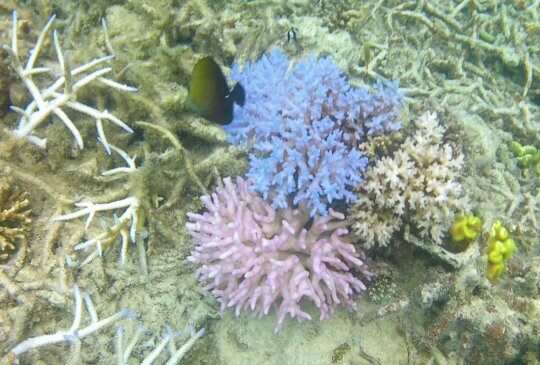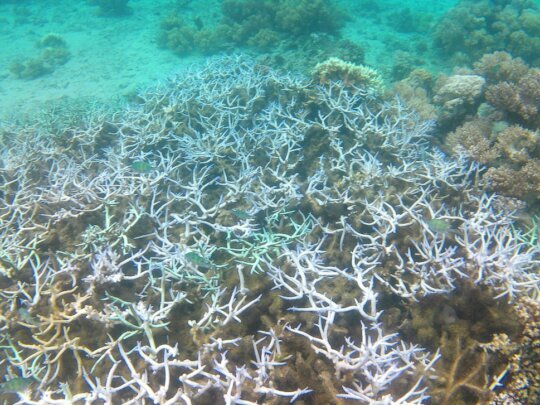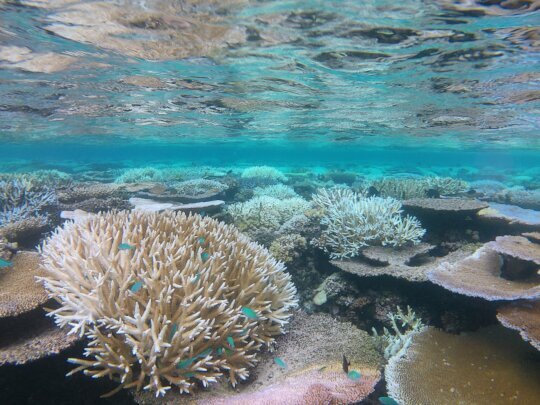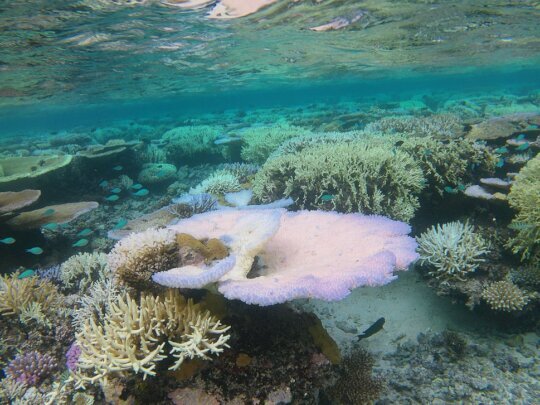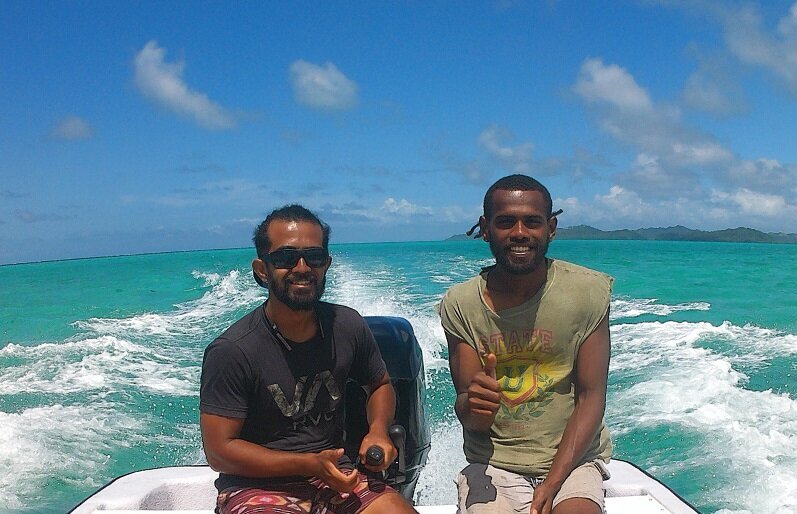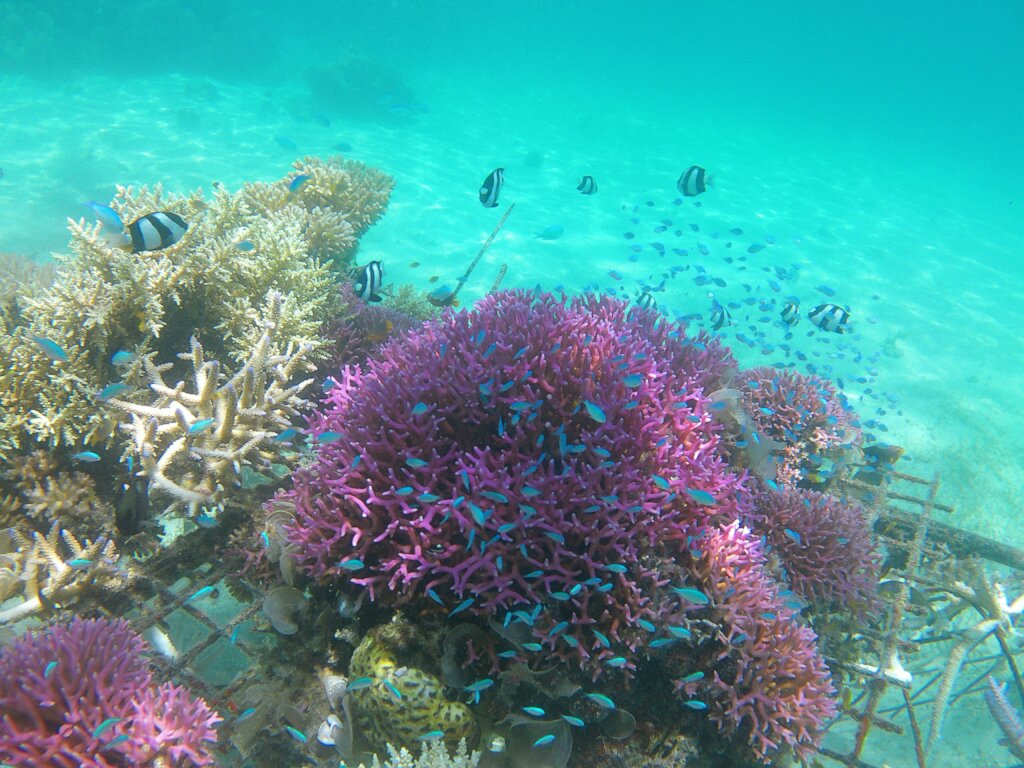Bula to the our "Reefs of Hope" supporters and donors around the world. Super Cyclone Kevin, condition 4, passed south of Fiji, and brought very windy and rainy weather, which cooled off the western waters of Fiji. Cyclone Judy also cooled the waters the week before. However, it was too little too late for eastern Fiji and Tonga as the bleaching is severe in those areas. While we say a thank you: "vinaka vakalevu" to cyclones Kevin and Judy for cooling Fiji's waters, we are saddened about the badly damaged communities of Vanuatu.Our main Malolo sites are now only at warning level, and will not likely bleach this year, thankfully buying us more time to complete the set up of experiments. In late December and early January, scattered bleaching occurred, which was rather alarming, as it was only at the warning stage and not yet fully into tropical summer. Luckily, cooler and rainy weather moved in which enabled the corals to recover.
Minor bleaching stress like this has been shown to help corals acclimate and adapt to warmer waters over time.... adjusting their algae, and replacing them with stronger strains, as long as it is not so severe as to cause coral death. Our working hypothesis is that we can encourage the sharing of heat resistant algae from resistant to less resistant corals, by moving the heat adapted (hot pocket) corals out to cooler reef areas and planting them among the cooler adapted corals in secure nurseries. For Malolo reefs, that proof of concept will have to wait another year or so.
However, for our Moturiki sites in the east, the bleaching is quite severe, with 99% of all Acropora corals are now badly bleached. This is our area of intensive focus for the next few weeks. We are using the bleaching event to more clearly identify and collect bleaching resistant corals. We have just returned from the badly impacted Leleuvia and Moturiki reefs in our new project boat, operated by our newly trained and certified Fijian captain! We worked hard to collect samples from the very few unbleached corals from the bleached coral populations. We are working with the villages of Daku and Uluibau, and both villages have restored their no-fishing Tabu areas, with Fisheries providing marking buoys, and we at C4C providing the ropes and anchors. The last week of March we will return for another week of intense collecting and community training, with the goal of using the "super corals" for reinforcing the no-take areas and building resilience to future bleaching events. The strategies we are using were published in a scientific publication by the project scientist in January, available online for those interested:
https://www.mdpi.com/2673-1924/4/1/2/pdfThis ranks as Fiji's third worst stress event. Sadly, for the eastern reefs of the Lau group, this appears to be the worst bleaching there in recorded history, which will impact all of Fiji, as that area is where we get much of our coral larvae from during normal years. Fewer coral larvae will mean delayed coral reef recovery. This makes what we do: identifying bleaching resistant corals of the most vulnerable species, and securing them within protected reef sites, all the more important! As Corals for Conservation's one-year UNEP grant comes to an end in May, GlobalGiving will once again become our only source of project funds. There has been much rejoicing here that GlobalGiving's $10,000 bonus from our DIY matching campaign will be disbursed in April.
You responded to the appeal and made this happen! Thanks for your continued support, especially now when parts of the coral ecosystem are tetering and need extra help from us and their communities to thrive again!
Austin
Malolo Nursery in January during heat stress.
